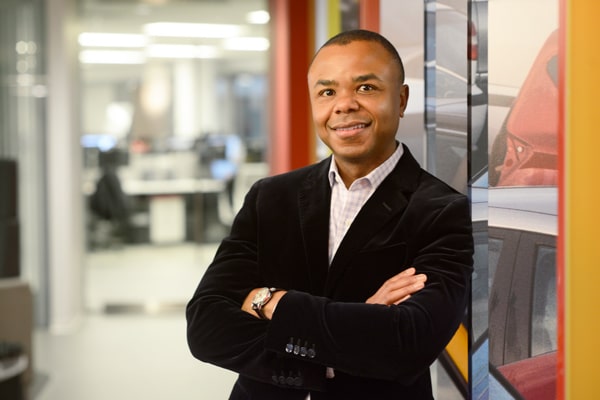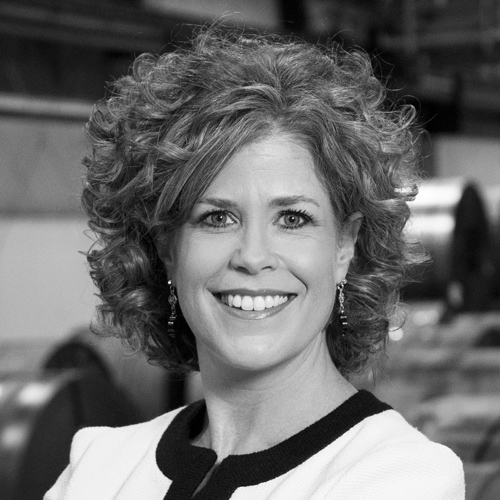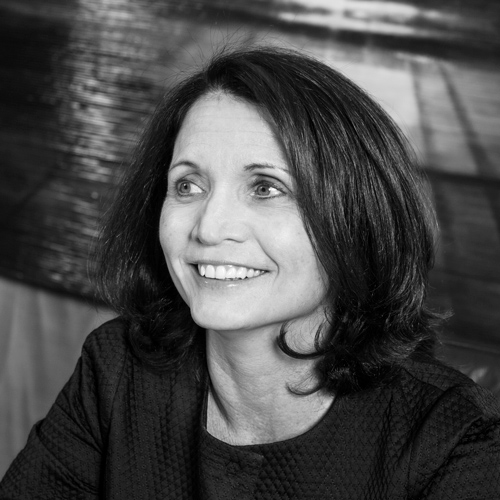
When he was eleven years old, Sidney Kerley was helping his father clean the dishes in their rural Alabama home when his father asked him what he wanted to be when he grew up. Instantly recalling the intelligence and strength of characters on TV shows such as Perry Mason, Law and Order, and LA Law, he replied, “I’m going to be a lawyer.” From that point on, he never considered another career path.
“I liked the intelligence,” Kerley recalls. “I liked how thoughtful they were, how they dug into the details of their cases, and even when what they learned was not necessarily favorable to their clients, they were able to present the facts and circumstances in such a way that it served their clients’ needs and moved their interests forward. It required sense and sensibility in understanding the truth you’re faced with, while simultaneously mustering the savvy, intellect, and self-confidence to master that truth. I wanted the challenge of it.”
Today, Kerley serves as senior vice president and general counsel at salvage automobile auction company Insurance Auto Auctions (IAA) in Westchester, Illinois. It’s not the destination he imagined, but it’s one where he’s happily served for sixteen years.
Never second-guessing his journey to general counsel, he completed undergraduate studies at Auburn followed by law school at Vanderbilt. Then, he headed west to Los Angeles to practice law.
“I discovered that the practice of law—especially litigation that I had idealized on television—was vastly different from the reality, and I was not cut out for litigation. After spending a few years trying to cut my teeth at practicing commercial litigation—not really being happy—I moved to Chicago,” he says. Originally wanting to start a nonprofit youth home, he stretched his savings until landing the corporate counsel role at IAA.
Kerley immediately enjoyed being able to focus his skills and resources on a single institution. At the time, IAA was in the midst of seeking a buyer. But the deal eventually disintegrated, the interim CEO became the permanent one, and the departure of his immediate supervisor meant that Kerley was the best candidate for the corporate
counsel title.
“I was very green,” Kerley explains. “I was very honest about that when the CEO offered me the role.” At twenty-six years old, he had been in practice for only two years, but the CEO responded enthusiastically to his eagerness and diligence. To grow into the role, he studied hard, learned from his associates and outside counsel, and eventually earned his MBA from Northwestern University in 2007.
“I made all our lawyers—our external lawyers and firms—my mentors,” he says. “I felt like I was really learning from them while serving as in-house counsel.”
Sixteen years after Kerley’s arrival, IAA’s entire business has evolved. In 2007, the company became part of KAR and provides sellers and buyers across the global wholesale used-vehicle industry with innovative, technology-driven remarketing solutions. Today, KAR has more than 330 locations and 17,400 employees in North America and the United Kingdom, including its headquarters in Carmel, Indiana.
“The business itself is interesting and continues to keep me curious about what’s next,” he explains. “The industry has transformed with technology at the heart of compressing and accelerating change. Through those transformations, the legal department has had an array of particular challenges and opportunities to guide the business toward new vistas.”
Thanks to those engaging challenges, as well as the organization’s opportunities for growth, turnover at IAA is generally low. Kerley says he is fortunate that many of his early hires still work with him today.
True to the intellectual rigor he so admired from those television lawyers, Kerley maintains that mutual challenge is key to the legal department’s process. CEO and president of IAA John Kett requires that senior staff leaders challenge each other in senior staff meetings; no idea should pass unquestioned through the decision-making apparatus. Kerley reproduces that approach with his own staff and puts himself on level ground when it’s time to evaluate options and make the best possible decision for the business.
“When we’re trying to make a decision, I always open the floor and ask staff to tell me where I’m wrong,” he says. “Point out the holes in my position. If I’m convinced, we’ll step back and move in a different direction.” And Kerley expects the same exactitude from his colleagues. He says that no one owns the right answer, and it’s essential that they learn from each other. This approach has earned him praise from many of his colleagues.
“Sidney’s collaborative approach to decision-making is very effective,” says Michael P. Sullivan, leader of law firm Pedersen & Houpt’s real estate practice group. “He routinely engages people from the business side, in-house counsel and outside counsel, and peppers them with questions and comments to arrive at the best decision for the company.”
Since the team’s goal is to position the legal department as the optimal adviser to the business, Kerley repeatedly asks his team to hold each other and himself accountable to it. Legal acts as a partner, furthering business goals and devising ways forward instead of simply identifying obstacles. For their part, the business side knows it can’t do everything, he says, and notes that they’ve thankfully never put the legal team through any serious ethical dilemma.
Kerley, who recently took his maternal grandfather’s name of Peryar as his legal surname, now says he’s comfortably in a position to mentor others and pay forward the guidance from those earlier years. As he continues his transition from counselor to senior executive, he’s excited about the continual growth and evolution of his department and the entire business. Although it wasn’t the stylish, high-conflict career that he imagined after childhood episodes of LA Law and the like, Kerley has found his IAA role rewarding, and he has been grateful to have an impact over a period of such far-reaching transformation. He hopes that his growth-oriented perspective will remain part of the organization’s approach.
“I hope that the lawyers on my team fully understand that they are partners to the business,” he says. “The legal department exists to facilitate the growth of the business, which means creating opportunities for expansion and removing obstacles that prevent the business from getting to where it needs to be as it evolves. As the business evolves, we evolve with it. That is, I think, one of the greatest legacies I could leave behind me.”

